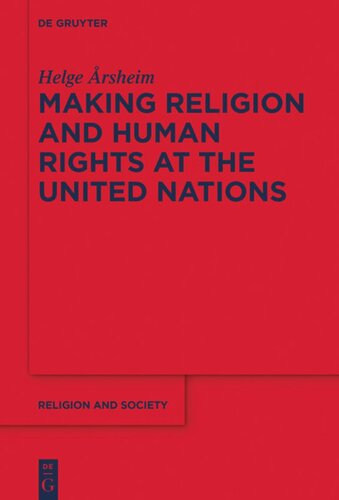

Most ebook files are in PDF format, so you can easily read them using various software such as Foxit Reader or directly on the Google Chrome browser.
Some ebook files are released by publishers in other formats such as .awz, .mobi, .epub, .fb2, etc. You may need to install specific software to read these formats on mobile/PC, such as Calibre.
Please read the tutorial at this link: https://ebookbell.com/faq
We offer FREE conversion to the popular formats you request; however, this may take some time. Therefore, right after payment, please email us, and we will try to provide the service as quickly as possible.
For some exceptional file formats or broken links (if any), please refrain from opening any disputes. Instead, email us first, and we will try to assist within a maximum of 6 hours.
EbookBell Team

5.0
60 reviewsOpen Access
This volume examines the different and sometimes contradictory approaches of four UN human rights committees to the concept of religion. Drawing on critical perspectives from religious studies, the book combines a genealogical assessment of the role of religion in international law with a detailed textual study of the reporting practice of the committees monitoring racial discrimination, civil and political rights, women's rights, and children's rights. Årsheim argues that the role of religion within the rights traditions monitored by the committees varies to the extent that their recommendations risk contradicting one another, thereby undermining their credibility and potential to bring about real change on the ground: Where some committees view religion singularly as a core individual right, others see religion partly as an inherent threat to the realization of other rights, but also as a potent social force to be reckoned with. In order to remedy this situation, Årsheim proposes the publication of a joint general comment by all the committees, spelling out their approach to the role of religion in the implementation of human rights.